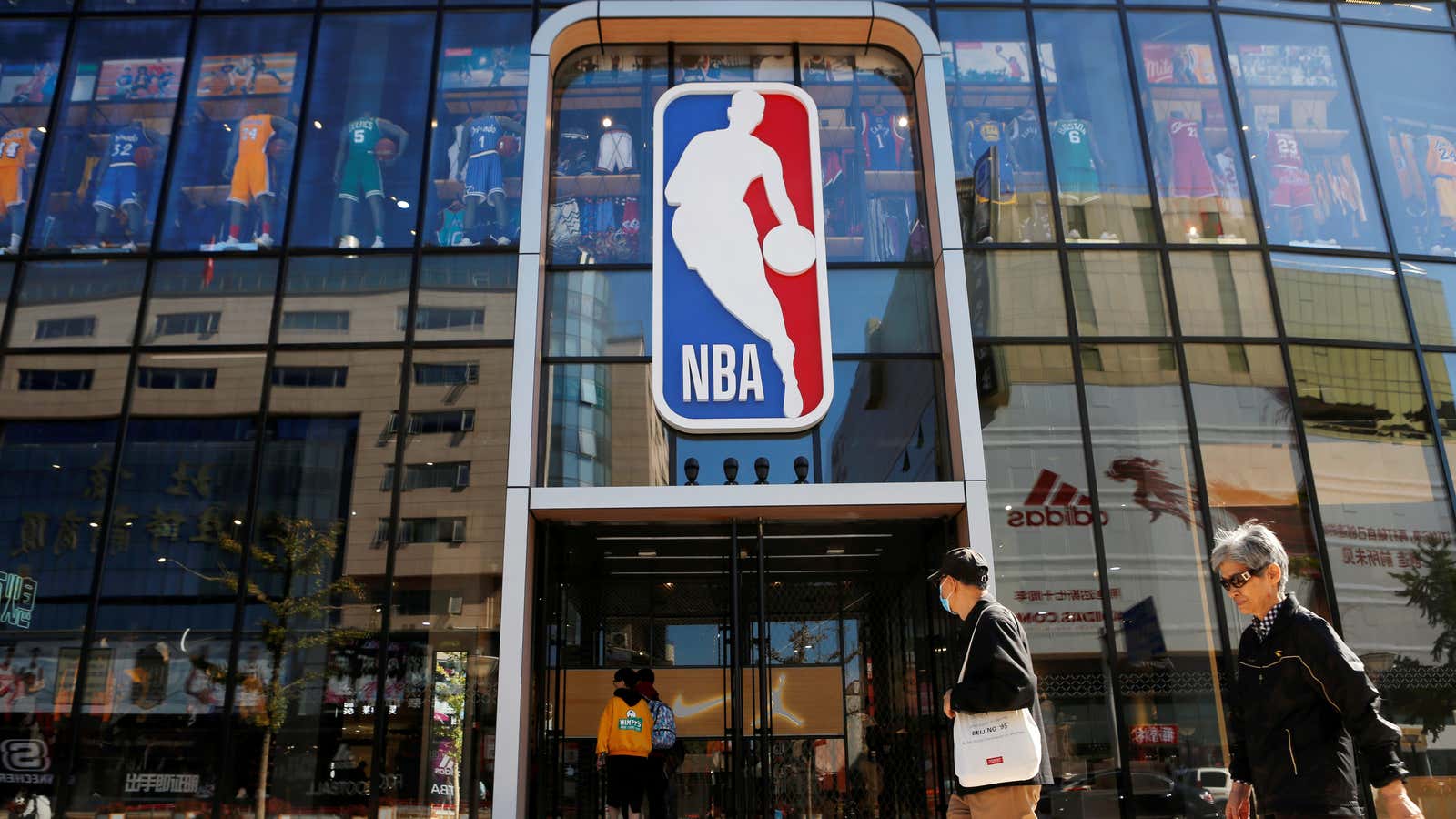The NBA’s decades of work building its business in China are suddenly at risk.
The US basketball league originally seemed willing to placate China after Houston Rockets general manager Daryl Morey, in a now-deleted tweet, voiced his support for the Hong Kong protesters. But NBA commissioner Adam Silver today issued a statement taking a firmer stance in support of free expression that has already prompted a backlash from the NBA’s partners in China.
“Values of equality, respect and freedom of expression have long defined the NBA—and will continue to do so,” Silver said. “As an American-based basketball league operating globally, among our greatest contributions are these values of the game.” He added that people around the world will inevitably have different viewpoints. It’s not the NBA’s role to adjudicate those differences or regulate what people in the league choose to say, he said.
The response from China came quickly. Chinese state television, CCTV, suspended its plans to broadcast the NBA pre-season in China and condemned Silver’s remarks. Smartphone maker Vivo, which was set to sponsor upcoming exhibition games, has halted cooperation with the NBA, as has Tencent, the Chinese internet giant that serves as the NBA’s digital media partner in China.
The stakes are high for the NBA. It spent years laying the foundations for its business in China, and launched NBA China—a separate organization collectively owned by the NBA team owners—in 2008. The NBA has become China’s most popular sports league, and for the league, China is one of its most valuable markets outside the US. “Today, NBA China is well past $4 billion,” NBA deputy commissioner Mark Tatum told Forbes in an interview last year.
Live streaming of games is key to that business. Tatum pointed out that Tencent streams the NBA “to hundreds of millions of people every morning and every day.” This year, the league expanded that longstanding partnership with the company: Tencent said 490 million Chinese fans watched some form of NBA programming on its platform. The NBA’s relationship with CCTV had also continued to grow. Both are important to NBA China. Tatum said that distribution of content is its fastest-growing revenue stream in China, and while the league also makes money off sponsorships and merchandising, those lines would struggle without broadcasts of games.
Access to all those Chinese viewers is now under threat. The Hong Kong protests have been a highly sensitive issue for the Beijing government and people online on China’s mainland. Now in their fourth month, the demonstrations, which started in reaction to a now-abandoned extradition law, have since turned into a call for free elections in the city and investigations into police conduct. International brands, such as luxury labels that look to China for sales, have found themselves entangled in the situation. Generally they’ve been quick to apologize, for fear of losing customers and access to the Chinese market. The NBA looked like it would follow suit—until Silver’s statement.
“They could lose their business in China,” Marc Ganis, a sports consultant, told Bloomberg. While he said he doesn’t expect that to happen because of the good will the NBA has built over the years, it could still be costly.
The costs might not only be to the NBA. Nike, the league’s exclusive apparel provider, and Under Armour have growing basketball businesses in China, thanks in part to their NBA connections. Their popularity isn’t likely to decline over night, particularly for Nike, which also works with China’s high-school basketball league. But fewer people watching their star athletes isn’t likely to help sales of jerseys or signature sneakers.
